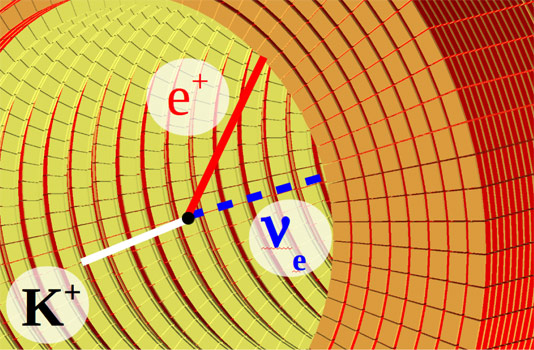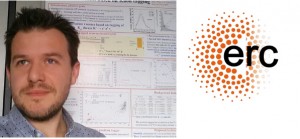With a 2 million EUR funding for a duration of 5 years the European Research Council (ERC) has awarded the ENUBET project (Enhanced NeUtrino Beams from kaon Tagging). The Principal Investigator is Andrea Longhin, a researcher working at the Frascati INFN National Laboratories. Longhin is among the 302 researchers awarded at an international level this year (with 585 MEUR in total) with the so-called “Consolidator Grants” of the ERC(*). This funding is meant, on a competitive basis, to offer researchers an extraordinary opportunity to make innovative and excellent research programs come to life.
ENUBET opens a new frontier in neutrino physics providing physicists with an unprecedented investigation tool: an intense source of electron neutrinos (νe) endowed with a ten-fold increase in precision.
Succeeding in measuring positrons associated with the production of electron neutrinos in decay tunnels: this is the challenge that ENUBET will tackle taking advantage of the substantial ERC funding and of a strong team of experts composed of physicists from both INFN and other European institutions.
Decay tunnels are tough environments for those aiming at installing detectors there: particle fluxes are extraordinarily high reaching up to a million particles per second per squared centimeter. The “intelligent” decay tunnel that ENUBET is proposing is a large detector (~50 m) based on innovative Silicon photo-sensors, potentially able to overcome the difficulties (radiation resistance, response speed, costs) that were making such a program wishful thinking just a few years ago.
In these years the international community of physics is engaged in the construction of large experiments in Japan and in the US to study at high precision subtle differences between the νμ → νe and those involving the anti-particles anti-νμ → anti-νe (leptonic CP violation). The observation of this effect would mark a breakthrough in particle physics: the dominance of matter over anti-matter that we observe today could actually come from the behavior of primordial neutrinos produced just after the Big Bang.
ENUBET will contribute to this world-wide effort redefining the quality of neutrino beams. It offers a tool that is capable of measuring all the details of the interaction of the νe with ordinary matter to an unprecedented level of precision.

The positron detector for the project ENUBET.
 INFN-LNF Laboratori Nazionali di Frascati
INFN-LNF Laboratori Nazionali di Frascati
